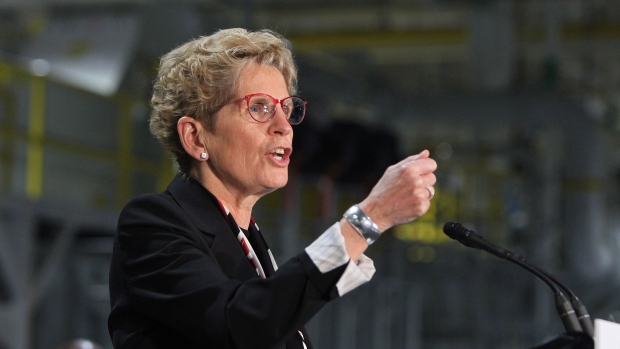
Florida’s Home Insurance Industry May Be Worse Than Anyone Realizes
A rash of failures of A-rated insurers points to a hidden weakness in the market, researchers say.
Latest Videos
The information you requested is not available at this time, please check back again soon.

A rash of failures of A-rated insurers points to a hidden weakness in the market, researchers say.

Whirlpool Corp., the owner of the Maytag and Amana appliance brands, is cutting about 1,000 salaried positions worldwide to reduce costs as slow US home sales limit demand.

Chicago Bears officials alongside Mayor Brandon Johnson unveiled plans for a $4.7 billion project to build a publicly owned, enclosed stadium and enhanced lakefront area.

Eleven hotels earned the top three-key distinction, in a list that focused on major markets rather than being truly comprehensive.
Blackstone Inc. and KKR & Co. mortgage real estate investment trusts are grappling with deteriorating office loans as higher interest rates and weak demand drive down property values.
Apr 4, 2017

Imposing new rent control rules is the “wrong medicine” to cure the growing affordability crisis in hot Ontario housing markets, warns CIBC Capital Markets Deputy Chief Economist Benjamin Tal in a new report.
“Rent control is the exact opposite of what the [Greater Toronto Area] market needs,” wrote Tal. “We need more rental units not less. If history is a guide, such policy will mostly hurt the people it’s trying to protect.”
Ontario Premier Kathleen Wynne told reporters on Tuesday that arguments against rent control do not “actually hold water” with her. She said the provincial government is developing “substantive” rent control reforms to address rising rental rates in and around Toronto.
Rent control rules were introduced in Ontario in 1975 as a temporary measure. When the province faced a rental shortage in 1992, the NDP government tried to encourage the building of more rental units by offering a five-year rent control exemption on new units. The exemption later became permanent.
“The fact that an NDP government (in 1992) had to ease rent control requirements is a clear indication that something went very wrong,” Tal wrote.
Wynne disagrees and says the lifting of rent controls failed to spur the construction of new rental units.
Ontario’s rent control regime helped create a rental-unit drought which is only now starting to dissipate, according to Tal. He noted there are now more than 5,000 new rental units currently under construction in the GTA with almost 28,000 units proposed, as of the fourth quarter of 2016.
Past attempts to control rents in both Ontario and around the world led to fewer rental units being built and made housing less affordable, noted Tal. “Under rent control, developers are less incentivized to build rental properties, a fact that exacerbates any price crunch.”
Despite his opposition, Tal acknowledges calls for rent control are understandable. “Rent in the GTA is now rising much faster than inflation, and rent control is seen as a way to ensure that households on low and middle incomes are not squeezed out of the city.”
Tal argues policymakers would have a better chance of increasing affordability by fast-tracking the land development approval process, increasing density targets and providing developers with the right incentives to build rental units.
“Rather than employing policies that have shown through the years to be not only ineffective but, in fact, harmful, we should pursue solutions with better chances of success.”